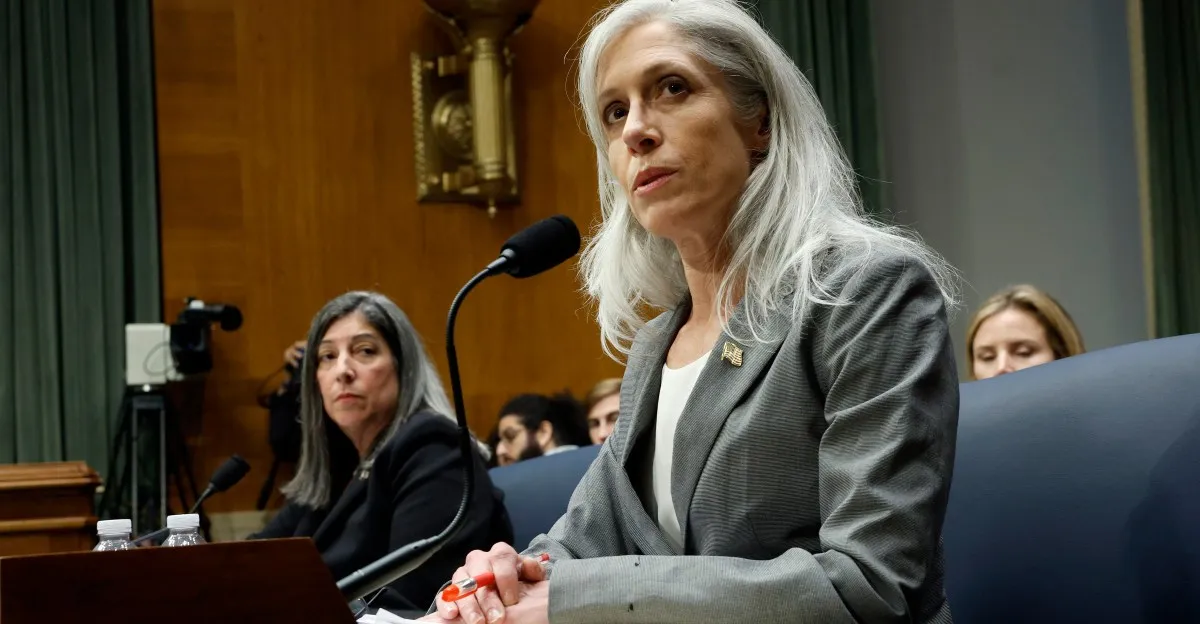
This morning, ousted Centers for Disease Control and Prevention (CDC) director Susan Monarez testified before the Senate, shedding light on her controversial dismissal by US Health and Human Services Secretary Robert F. Kennedy Jr. and former President Donald Trump. This testimony marks a significant moment in the ongoing conflict between the Trump administration and the established public health community. Monarez's account suggests that her firing was directly linked to the imminent meeting of the Advisory Committee on Immunization Practices (ACIP), scheduled to take place over the next two days.
During her testimony, Monarez revealed that a contentious meeting with Kennedy prior to her firing involved him pressuring her to endorse new vaccine recommendations without prior review. These recommendations were to be presented by the newly appointed ACIP, which is now composed of experts personally selected by Kennedy. She further alleged that Kennedy requested her to terminate career CDC vaccine scientists, raising serious concerns about the integrity of the vaccination process.
As Monarez spoke before the Senate health committee, she maintained her composure despite some Republican senators attempting to undermine her credibility. However, committee chair Sen. Bill Cassidy (R-LA), who is also a trained physician, emerged as a strong advocate for public health. He cautioned against any unjustified alterations to the childhood vaccine schedule, especially regarding the hepatitis B vaccine.
The ACIP's upcoming meetings are poised to address vital changes to the childhood vaccine schedule, particularly concerning the federal government's guidance on the Covid-19 vaccine and the measles-mumps-rubella (MMR) shots. Notably, the guidance surrounding the hepatitis B vaccine has become a focal point of contention, as highlighted during Wednesday's Senate hearing.
The hepatitis B vaccine has long been scrutinized, primarily by anti-vaccine activists, due to its administration within the first day of a newborn's life. During the Senate hearing, Sen. Rand Paul (R-KY) suggested that the timing of the vaccine should be reconsidered, arguing that it should only be given if the mother is confirmed to have hepatitis B. This suggestion raises concerns about the potential health risks for newborns.
In response to these concerns, Sen. Cassidy delivered a powerful rebuttal, emphasizing that a child infected with hepatitis B at birth faces over a 90% chance of developing a chronic infection. He pointed out the significant impact of the vaccine, stating that the US witnessed approximately 20,000 hepatitis B infections in newborns annually before the vaccine became standard in the early 1990s; now, that number has plummeted to fewer than 20. Cassidy urged the committee to recognize this achievement as a crucial step toward making America healthy again.
Sen. Cassidy also clarified that the CDC does not mandate the hepatitis B vaccine but does require insurance companies to cover its cost if parents choose to vaccinate their children. He expressed concern that altering the ACIP's recommendation for newborns could lead to a loss of insurance coverage for the vaccine, potentially undoing years of progress in controlling hepatitis B.
While today's hearing did not result in widespread calls for Kennedy's resignation, it highlighted the growing opposition to his aggressive overhaul of vaccine policy. Other Republican lawmakers, including Sen. John Barrasso (R-WY), have begun to question the value of vaccines, indicating a shift in sentiment among some members of the GOP. However, Kennedy still maintains a considerable base of support, as evidenced by the generally hostile questioning directed at Monarez.
Sen. Cassidy is a pivotal figure in this debate, given his position as the health committee chair and his medical background. His credibility among experts and the public places him in a unique position to influence the direction of vaccine policy. If Cassidy decides to challenge Kennedy's agenda, he has the potential to significantly impact the ongoing discussions surrounding vaccine recommendations, especially concerning the hepatitis B vaccine.
As the ACIP prepares for its critical meetings, the outcome of these discussions could have lasting implications for public health and the future of vaccination practices in America.